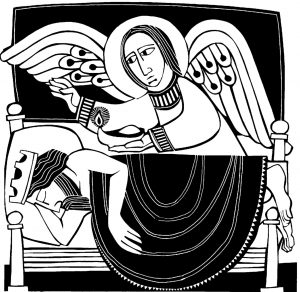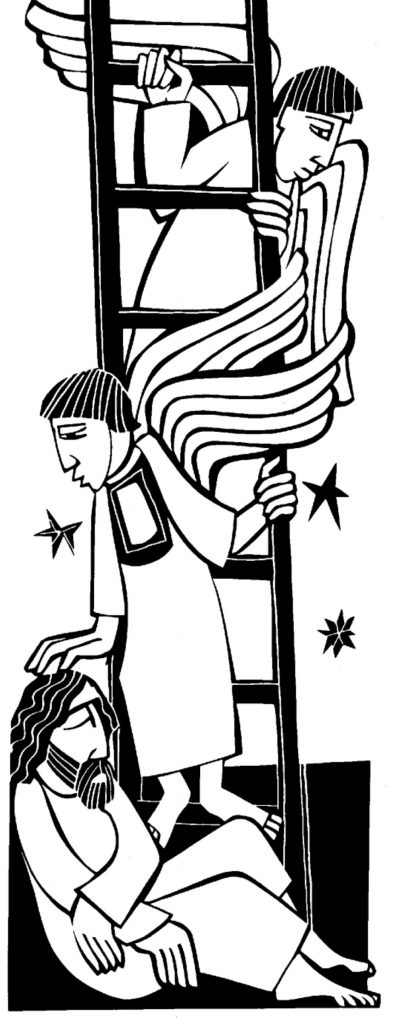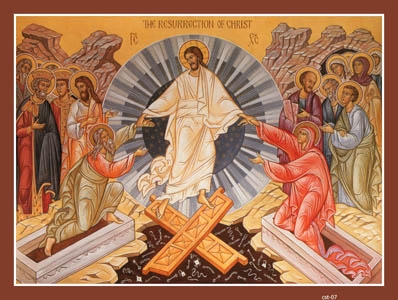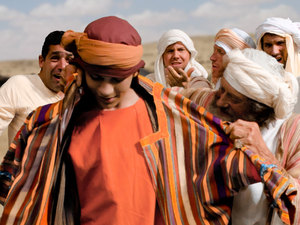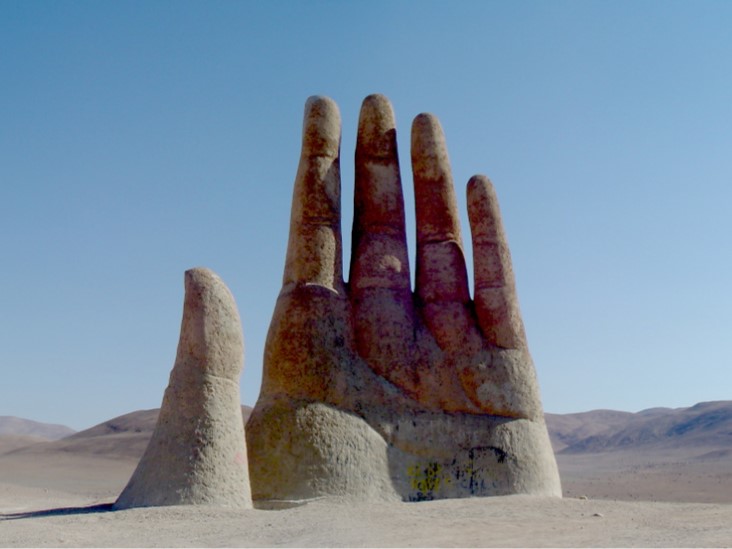Acts 16 & 18
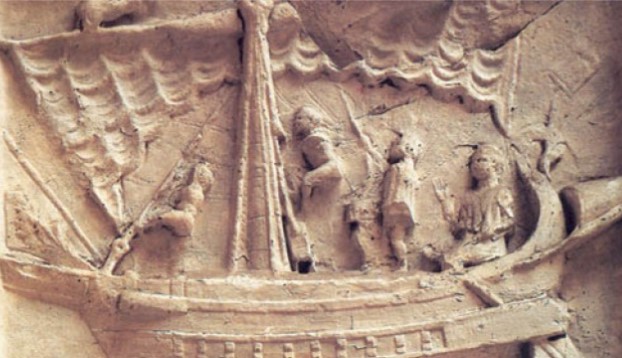
This summer we have been sharing stories of biblical dreams and visions. We started with dreams from the book of Genesis: dreams of Jacob and Solomon. This month we have focused on visions from the book of Acts. We started with Peter’s strange vision of inclusion (Acts 10), and continued with Paul’s vision of conversion (Acts 9). Today we hear more about Paul, from a little later in his story.
You may remember that Paul begins his life as Saul of Tarsus, a man of Jewish faith. Saul spends a lot of energy persecuting Jewish followers of Jesus until the resurrected Jesus himself appears to Paul in a vision. Paul goes on to become one of the most zealous evangelists of the early church, travelling far and wide to share the good news of the gospel.
But Paul’s conversion experience is not his only close encounter with God. As he undertakes the difficult work of evangelism, he continues to receive guidance and encouragement from God through visions. I was fascinated to realize that neither of the visions we hear today are part of our lectionary, the three-year schedule of readings many churches follow. So if these stories sound new to you: you’re probably not alone.
Paul is travelling with Silas and Timothy, trying to find a new place to preach and teach, when he has a vision. A person from Macedonia pleads with him, saying, “Come over to Macedonia and help us.” Paul does not hesitate: he immediately gets on a boat and heads to Philippi. His stay there is quite eventful. A woman named Lydia is converted and becomes Paul’s host. Paul performs a healing that leads to an arrest, a midnight hymn sing, a divine earthquake, a prison break, and the subsequent conversion of the jailer and his household. I’m really surprised that no one has made a movie about this text.
The second story we hear a portion of this morning is a little less Hollywood-worthy but still quite dramatic. Paul arrives in yet another town. He finds yet another place to stay. And folks are not eager to listen to him, they oppose and revile him. In a fit of temper, Paul declares, “Your blood be on your own heads! I am innocent.” He’s ready to give up convincing the folks of this synagogue, maybe all of his Jewish siblings, to follow Jesus. But God provides encouragement, appearing in a vision and saying: “Do not be afraid, but speak and do not be silent; for I am with you.”
Don’t worry if you can’t keep straight the details of these two adventures. Those who are curious, I hope you will read through these chapters in Acts when you get home. For now, let’s just notice what it’s like for Paul to be a follower of Jesus, and to proclaim the risen Christ in the ancient world.
Paul’s vocation leads him into a profoundly precarious existence. He’s always on the move, never sure of having a place to stay, or enough to eat. And everywhere he goes, Paul causes trouble with his words. He offends people of all kinds: Jews and Gentiles, Roman officials and religious authorities. If you read Paul’s whole story in our scriptures, you’ll notice that he often leaves a place because it has gotten too hot for him. Over the course of his travels, Paul is stoned and he is shipwrecked and he spends a lot of time in prison – maybe one of the reasons why he had the time to write so many famous letters.
Paul is risking it all in pursuit of the gospel. He does what he does imperfectly. From our modern perspective we could offer plenty of critiques of his theology, his views of women, his approach to evangelism. But Paul is all in on this very risky endeavor of sharing the good news of Jesus, and he is probably the reason why we have all heard of Jesus here today. While Paul continues this dangerous work, God sends visions. These visions tell Paul: Serve still more people. Try yet more places. Speak and do not be silent.
We often think of God’s presence in our lives as calming, comforting, centering. Sometimes, God shows up like that. But it wasn’t like that for Paul. God’s grace shows up in Paul’s life as an interruption. God interrupts Paul’s life again and again and again. God interrupts Paul, and They encourage Paul to be an interrupter as well: to show up again and again with bold, loud, unapologetic good news.
Maybe you can think of someone who’s a bit like Paul in our world today: someone whose work of love could be described as bold, loud, and unapologetic. I think of women of color in congress, workers at Planned Parenthood, legal advocates for immigrants and those in prison. I think of all those whose very presence in our country is controversial, whose very personhood is disputed: people of color, of a non-Christian faith, LGBTQ+ identifying people, immigrants, those in poverty. There are so many among us who are opposed and reviled, run out of town, threatened with violence, imprisoned, and even killed, for the work they do, or for simply existing.
Paul makes me consider these folks; the price that they pay; and what kind of amazing divine power makes it possible for them to get up in the morning.
What is there in these texts, in Paul’s story, for us?
If you are busy with some challenging work of love; or if simply living as who you are is a challenging work of love; I hope you receive some encouragement. You are in great company, with Paul, Silas, Timothy, Lydia, Aquila and Priscila; with saints and heroes from the early church and from every age. Be ready for a message of divine encouragement: God is close to you.
If you have not recently noticed God calling you towards something uncomfortable, something audacious, something that interrupts or even threatens your way of life; I hope you will open the door of your heart to this possibility. There is such a thing as good trouble. Indeed, most beautiful things, most holy things, have not happened without it.
God, from of old you have called your imperfect people to strange ventures. You send us out on long journeys, involve us in arduous struggles. You invite us into challenging relationships. You encourage us to voice unpopular truths. Thank you for daring us to be reborn again and again in your love. Thank you for encouraging and challenging us, and being our companion in this world in which your justice is so often only realized because of the bold. Amen.
